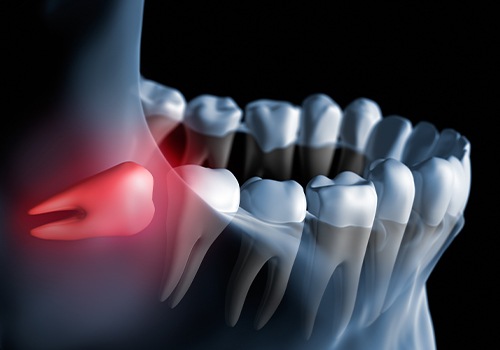
Wisdom Tooth Extractions - San Antonio, TX
Stop Harmful Teeth and
Stay Proactive!
Once you get between the ages of 18 and 25, you might start to notice discomfort in the back of your mouth that you didn’t have before. Even if you know that you have healthy teeth and practice good at-home hygiene, wisdom teeth can erupt and wreak havoc on your smile and bite’s current alignment. At Brice Dental, we extract harmful teeth that cause crowding, increase your risk of developing an oral infection, and negatively affect your oral health overall. If you start to notice discomfort in your back teeth, give our dental office a call to discuss wisdom tooth extractions in San Antonio, TX!
Why Choose Brice Dental for Wisdom Tooth Extractions?
- Detailed and Personalized Treatment Planning
- Modern and Highly Advanced Technology In-House
- Nitrous Oxide, Oral Conscious, and IV Sedation Available
When is a Wisdom Tooth Extraction Needed?

It’s rare for all four wisdom teeth to be able to erupt without needing them extracted. The most common sign that you need to have them removed is pain stemming from the back of the mouth, while other signs may include swelling or fever as a result of an infection developing due to their eruption. We’ll perform a detailed exam of your mouth, capture X-rays to determine the path of your erupting wisdom teeth, then provide a treatment plan from there.
What Does a Wisdom Tooth Extraction Entail?

Depending on the current state of your erupting tooth, our dental office will perform either a simple extraction or a surgical one. Simple extractions are performed when the wisdom tooth has fully erupted, therefore making it easily visible for the dentist. By using a dental elevator to detach the tooth from the periodontal ligament holding it in place, Dr. Brice can gently remove the tooth in question. If the tooth is trapped underneath gum tissue or neighboring teeth (impacted), then he’ll make a small incision in the gum tissue, gently break the tooth into smaller pieces, then remove them individually.
Wisdom Tooth Extractions FAQs
Why Are Wisdom Teeth Called That?
If you’ve ever wondered how the third set of molars got the nickname “wisdom teeth,” it’s because they usually make an appearance in early adulthood. In fact, they sometimes don’t emerge until the early to mid-20s!
Does Everyone Have Wisdom Teeth?
You might be surprised by the fact that not everyone has wisdom teeth! It’s currently estimated that between 5% and 37% of people don’t have any, but it’s difficult to know for sure. What we do know, however, is that this is often due to genetics. In other words, if your parent never had a third set of molars, you might not either!
Should Wisdom Teeth Be Removed If They Don’t Hurt?
Remember, chronic pain is just one complication that comes with problematic wisdom teeth. It’s also possible for infections to develop as well as frequent headaches, cysts, and cavities. So, if your dentist is recommending having them extracted, it’s a good idea to get your next appointment on the calendar sooner rather than later – even if you aren’t experiencing any problems or discomfort now.
How Should I Prepare for My Wisdom Tooth Extraction?
Although wisdom tooth extractions are quite common, it’s still important to do your part to prepare properly. That starts with making arrangements for someone you trust to drive you home from your appointment and buying everything you need, like over-the-counter pain medication and soft foods. We also recommend wearing comfortable clothes and eating a healthy meal before you arrive at our office.
Note: If you’re unsure of what to eat, what to bring, etc., you’re more than welcome to give us a call. We’d be happy to share our recommendations with the goal of helping you have the smooth and stress-free experience you deserve.
Is Wisdom Tooth Removal Painful?
Patients commonly assume that having their wisdom teeth extracted will be painful. The reality is that – whether we’re removing one tooth or all four teeth – we will thoroughly numb your mouth first. That way, you feel nothing more than some slight pressure from us working during your time in the treatment chair.
After the numbing agent wears off (usually an hour or two after you return home), you can take OTC pain medication, stick to soft foods, use cold compresses, and avoid hot/cold beverages to prevent any soreness from arising.
How Soon Can I Eat After Wisdom Teeth Removal?
In the hours and days following your wisdom tooth extraction, you should avoid crunchy, hard, sticky, acidic, and sugary foods entirely. Instead, opt for smile-friendly foods that don’t require any chewing, like plain yogurt, oatmeal, and vegetable soup. Around the four- or five-day mark, you can start adding heartier foods into your diet.
I Need a Dental Checkup & Cleaning I am Concerned About Bleeding Gums I Have a Cavity or Broken Tooth I am Missing One or More Teeth I am Unhappy with My Smile I am Afraid/Nervous of the Dentist I am in Pain & Need Help I Want Whiter Teeth I Need Full Mouth Reconstruction View Our Services